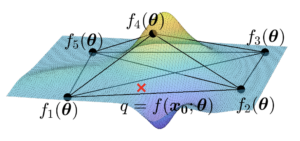Quantum Ideas Factory – Strasbourg Edition
Join us in Strasbourg for a 3 day scientific hackathon where bright minds turn bold ideas into breakthroughs in quantum science and technology from 23-26 March 2026. See the event page for more information.
Quantum Week 2026!
The European Center for Quantum Sciences in Strasbourg is hosting an electrifying week-long celebration from March 23-28, 2026! For more information please contact quantumweek@cesq.eu
Research Areas
News & Highlights
CESQ Colloquium by Alexey Gorshkov on 10/02
The next Colloquium will be on Tuesday February 10 at 3PM, CESQ Seminar Room. It will be given by Alexey Gorshkov from NIST and University of Maryland, on Quantum sensor networks (download abstract)

CESQ Colloquium by Tracy Northup on 18/11
The next Colloquium will be on Tuesday September 30 at 3PM, CESQ Seminar Room. It will be given by Leticia Cugliandolo from Sorbonne Université Paris, on Statistical Physics Out of Equilibrium (download abstract)
CESQ Colloquium by Sylvain Gigan on 04/11
The next Colloquium will be on Tuesday September 30 at 3PM, CESQ Seminar Room. It will be given by Leticia Cugliandolo from Sorbonne Université Paris, on Statistical Physics Out of Equilibrium (download abstract)
CESQ Colloquium by Mark Saffman on 14/10
The next Colloquium will be on Tuesday September 30 at 3PM, CESQ Seminar Room. It will be given by Leticia Cugliandolo from Sorbonne Université Paris, on Statistical Physics Out of Equilibrium (download abstract)
CESQ Colloquium by Leticia Cugliandolo on 30/09
The next Colloquium will be on Tuesday September 30 at 3PM, CESQ Seminar Room. It will be given by Leticia Cugliandolo from Sorbonne Université Paris, on Statistical Physics Out of Equilibrium (download abstract)





